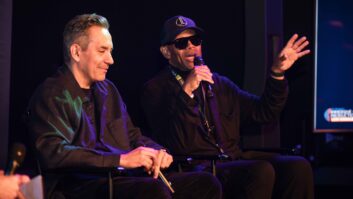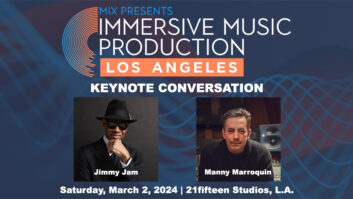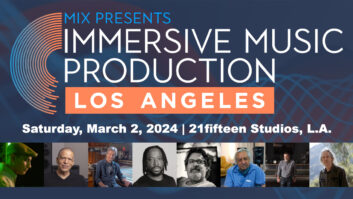Washington, DC (October 12, 2018)—Codifying—among other significant provisions—the right of music producers and engineers to collect digital royalties through a consistent, permanent process, the Music Modernization Act (MMA) was signed into law on October 11 following its unanimous passage through the House and the Senate.
The 185-page bill is the most sweeping reform of music licensing in four decades. Bringing licensing and royalty collection into the digital age, it combines three pieces of legislation into a single bill, H.R. 1551, that is officially named the Orrin G. Hatch-Bob Goodlatte Music Modernization Act for its champions in Congress. Senator Orrin Hatch (R-UT) and Representative Bob Goodlatte (R-VA) were present at the signing ceremony at the White House on October 11, as were various music professionals, including Jeff “Skunk” Baxter, Mike Love of the Beach Boys, Christian rock band Mercy Me and Kid Rock.
Central to the new legislation is the Music Modernization Act of 2018, S.2334, which Hatch and Senator Lamar Alexander (R-TN) introduced in January. It updates licensing and mechanical royalties related to streaming, setting rates via a “willing buyer/willing seller” standard that is also expected to give the performing rights organizations in a stronger negotiating position for the future. A centralized agency, the Mechanical Licensing Collective (MLC), will collect and administer those royalties on behalf of songwriters and publishers.
A second part, the CLASSICS Act (Compensating Legacy Artists for their Songs, Service and Important Contributions to Society Act), was introduced in February by Chris Coons (D-DE) and John Kennedy (R-LA). It closes the so-called “pre-1972 loophole,” which enabled digital services to avoid paying royalties to legacy artists and led to extensive litigation in the courts over recent years.
Finally, the AMP Act (Allocation for Music Producers Act), introduced by Senate Judiciary Committee chairman Chuck Grassley (R-LA) and ranking committee member Dianne Feinstein (D-CA) in March with the support of Senators Bob Corker (R-TN) and Kamala Harris (D-CA), ensures that producers and engineers not only receive credit but also proper compensation. SoundExchange, which administers royalties from non-interactive streaming recordings, will provide direct payment of royalties owed to producers and engineers upon direction by the featured artist.
Music producers have never been mentioned in any part of the copyright law. The MMA has codified the producer’s right to collect those royalties due to them and formalizes SoundExchange’s current voluntary policy.
As explained by the Recording Academy, which advocated for the AMP Act, “Since 1995, featured performers have had a statutory right to 45 percent of the performance royalties collected from non-interactive, digital music services. Subject to their contract with the artist, producers often collect royalties from that 45 percent because they were not included in the 1995 law for a statutory right.”
For sound recordings older than 1995, the AMP Act establishes a procedure for producers and engineers to seek permission from featured artists or their heirs to receive appropriate royalty payments.







